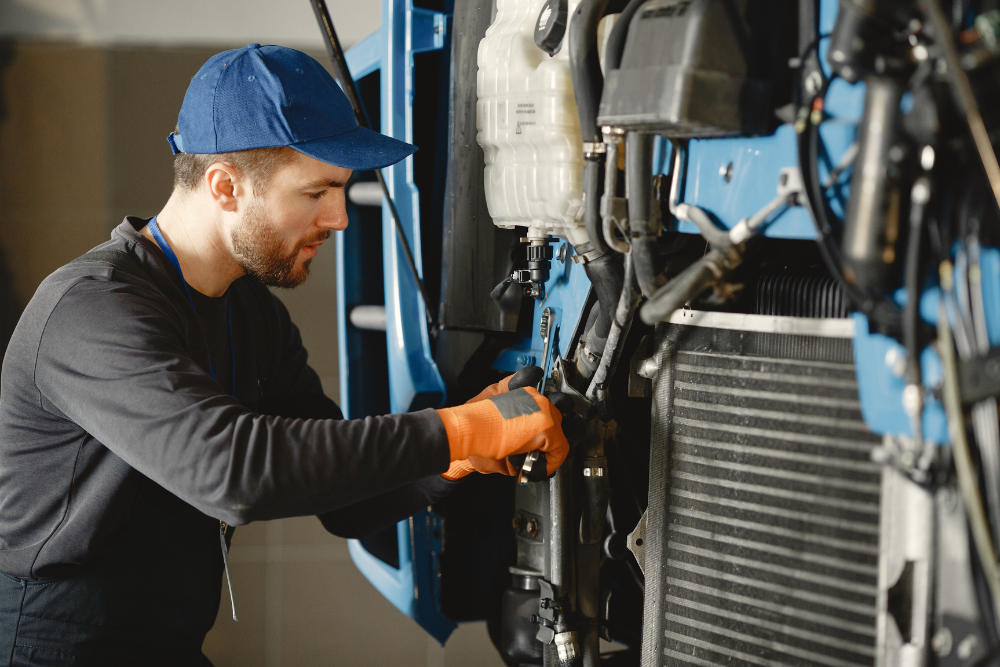Heating, Ventilation, and Air Conditioning (HVAC) systems are essential for maintaining indoor comfort in both residential and commercial settings. Whether it's sweltering summer heat or the chill of winter, an HVAC system regulates temperature, humidity, and air quality. However, to ensure long-lasting performance and energy efficiency, regular HVAC maintenance is crucial.
In this guide, we’ll explore everything you need to know about hvac maintenance from its importance and types to best practices and scheduling.
1. What Is HVAC Maintenance?
HVAC maintenance involves a series of inspections, cleanings, adjustments, and tests performed on heating and cooling systems to ensure they operate efficiently and safely. It includes:
-
Checking refrigerant levels
-
Cleaning or replacing filters
-
Inspecting electrical components
-
Lubricating moving parts
-
Cleaning condensate drains and coils
Routine maintenance can be carried out seasonally, annually, or as needed based on system usage and manufacturer recommendations.
2. Importance of Regular HVAC Maintenance
Neglecting HVAC maintenance can lead to a host of problems such as poor air quality, increased utility bills, system breakdowns, and even complete system failure. Here’s why regular upkeep is essential:
a. Energy Efficiency
A well-maintained HVAC system runs more efficiently, consuming less energy and reducing utility costs.
b. Extended Equipment Lifespan
Routine check-ups prevent small issues from escalating into major problems, thus extending the life of the equipment.
c. Improved Air Quality
Clean filters and ducts ensure that the air circulating in your home or office is free of dust, allergens, and pollutants.
d. Safety Assurance
Maintenance checks can identify potential safety risks, such as gas leaks or electrical issues.
e. Warranty Compliance
Many HVAC warranties require proof of regular maintenance to remain valid.
3. Seasonal HVAC Maintenance Checklist
Spring and Summer (Cooling Season)
-
Inspect and clean the condenser coils
-
Check and refill refrigerant levels
-
Clean or replace air filters
-
Inspect the thermostat
-
Clean and inspect ductwork
-
Lubricate moving parts
-
Clear debris from outdoor units
Fall and Winter (Heating Season)
-
Inspect heat exchanger for cracks
-
Test and calibrate thermostat
-
Check burners and ignition systems
-
Clean and replace filters
-
Inspect flue systems for proper ventilation
-
Test carbon monoxide detectors
-
Lubricate motor and bearings
4. DIY HVAC Maintenance Tips
While professional servicing is recommended, there are several tasks homeowners can do themselves:
-
Change Air Filters Monthly: Dirty filters restrict airflow and lower efficiency.
-
Keep Vents Unobstructed: Ensure vents are open and free of furniture or dust buildup.
-
Clean Around Outdoor Units: Remove leaves, grass, and debris from around the condenser.
-
Check Thermostat Batteries: Replace them at least once a year.
-
Monitor Energy Bills: A sudden increase may indicate a problem with the system.
5. When to Call a Professional
Some maintenance tasks require technical knowledge and specialized equipment. Call a certified HVAC technician if you notice:
-
Strange noises or odors
-
Inconsistent temperatures
-
Frequent cycling on and off
-
Water leaks around the unit
-
Poor airflow from vents
An annual or biannual maintenance contract with a reputable HVAC service provider can save time and prevent costly breakdowns.
6. Choosing the Right HVAC Maintenance Service
When selecting a professional HVAC company, consider the following:
-
Certifications and Licensing: Ensure they have appropriate credentials and insurance.
-
Experience: Look for established providers with a track record.
-
Reviews and Recommendations: Check online ratings and ask for references.
-
Maintenance Plans: Opt for service agreements that offer scheduled visits and emergency support.
-
Pricing Transparency: Choose a company that provides clear, upfront pricing.
7. HVAC Maintenance Costs
The cost of HVAC maintenance can vary based on location, system complexity, and service frequency. On average:
-
One-time maintenance visit: $100–$200
-
Annual service contract: $150–$500
-
Emergency repairs: $150 and up
Though there’s a cost, it's far less than what you'd pay for emergency repairs or a full system replacement due to neglect.
Conclusion
HVAC maintenance is not just a recommendation—it's a necessity. Regular servicing ensures your system runs efficiently, lasts longer, and keeps your indoor environment safe and comfortable. Whether you're a homeowner or a business operator, investing in routine HVAC care will pay off in lower energy bills, fewer breakdowns, and improved air quality.



